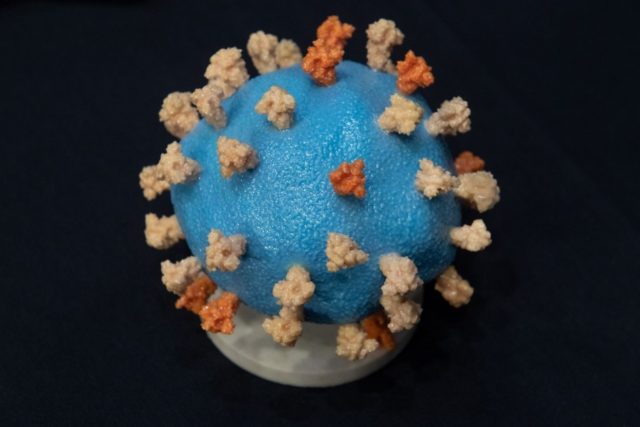Aug. 4 (UPI) — The common cold might help produce immunity against COVID-19, even in people who have not been infected with the new coronavirus, according to a study published Tuesday by the journal Science.
This immune response is likely a function of a phenomenon called “T cell memory,” the researchers said.
T cell memory could help explain why some people — those with T cells created to fight the common cold, which also is a type of coronavirus — don’t get as sick as others from COVID-19, they said.
“In this study, we provide conclusive evidence that preexisting immune memory can be derived from exposure to common cold coronaviruses,” study co-author Daniela Weiskopf told UPI.
“The results of the study also emphasize that T cells should be considered and measured, both in studies about COVID-19 and about [potential] vaccination,” said Weiskopf, assistant professor at the La Jolla Institute for Immunology’s Center for Infectious Disease and Vaccine Research.
T cell responses specific to COVID-19 have been observed in up to 50% of people who were not exposed to the virus, likely because of prior history with the common cold, which most people contract fairly regularly, a study published in June by the journal Cell found.
T cells, or white blood cells, are used by the immune system to fight infections, and it’s believed they retain information of pathogens that have invaded the body in the past — like the common cold — a process called “T cell memory,” according to Weiskopf and her colleagues.
Human cold coronaviruses share a partial sequence with the virus that causes COVID-19, the researchers of the Cell study said.
For this study, Weiskopf and her colleagues screened blood samples collected in 2019 — before the pandemic struck the United States — for T cell responses to more than 100 COVID-19 peptides, or amino acids produced by the virus.
The collected samples had “a range” of T cells that offered protection against both COVID-19 and to the common cold.
The strongest T cell responses were associated with the COVID-19 spike protein, which is used by the virus to gain entry into human cells, the researchers said.
These findings are in “stark contrast” to results of studies on coronaviruses that cause the common cold in humans, in which antibodies are species-specific and do not cross-react against COVID-19, they said.
Unfortunately, while the T cells identified in this study could serve as the basis for a vaccine against the virus, they will not contribute to “herd immunity,” or widespread population immunity, Weiskopf said.
“There is still much to learn about how every one of us reacts to different infections, and how the different infection history shapes our reactions,” she said.
However, “we have demonstrated that T cells derived from exposure with common cold coronavirus can cross-react with [COVID-19 and] … are directly or indirectly involved in protection from disease or infection.”

COMMENTS
Please let us know if you're having issues with commenting.